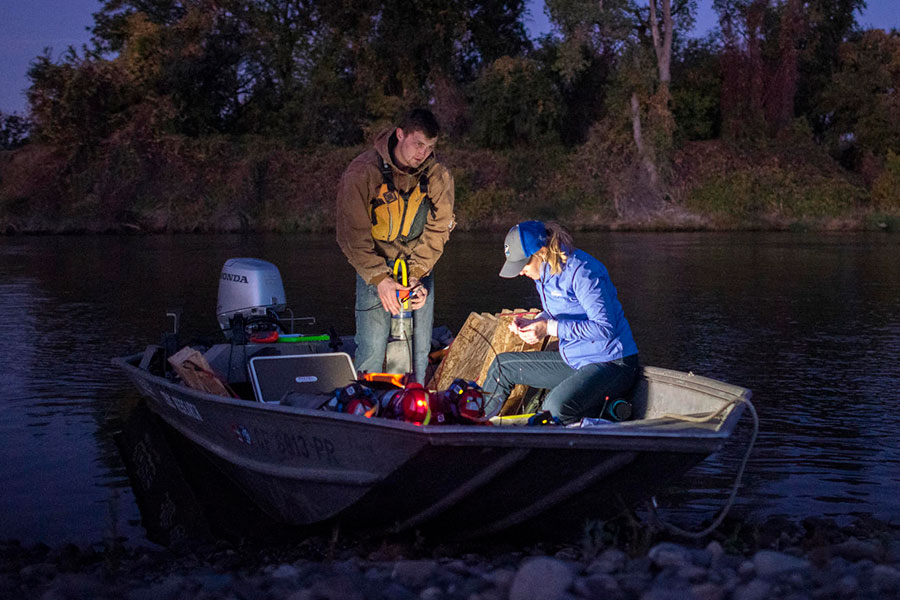Biological Sciences (MS)
Options
Option in Botany
Application Deadlines
- Fall: May 1 (March 1 for international applicants)
- Spring: October 1
Requirements
Two letters of recommendation, curriculum vitae, and statement of purpose. Contact and identify a faculty mentor.
Program Coordinator
Christopher Ivey
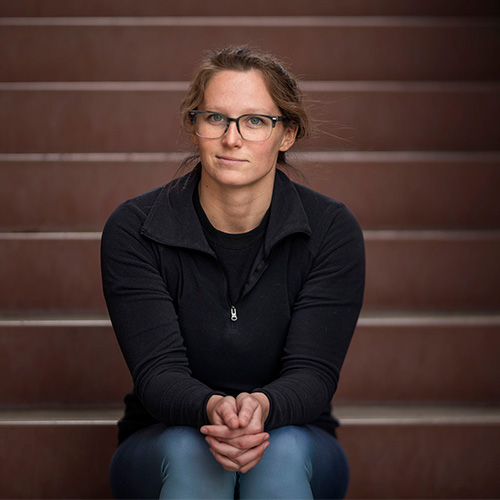
Is the MS in biological sciences for you?
Do any of the following describe you?
- Deeply curious about the world around you.
- Desire to understand how things work.
- Love to apply research to the real world.
- Enjoy testing and analyzing data.
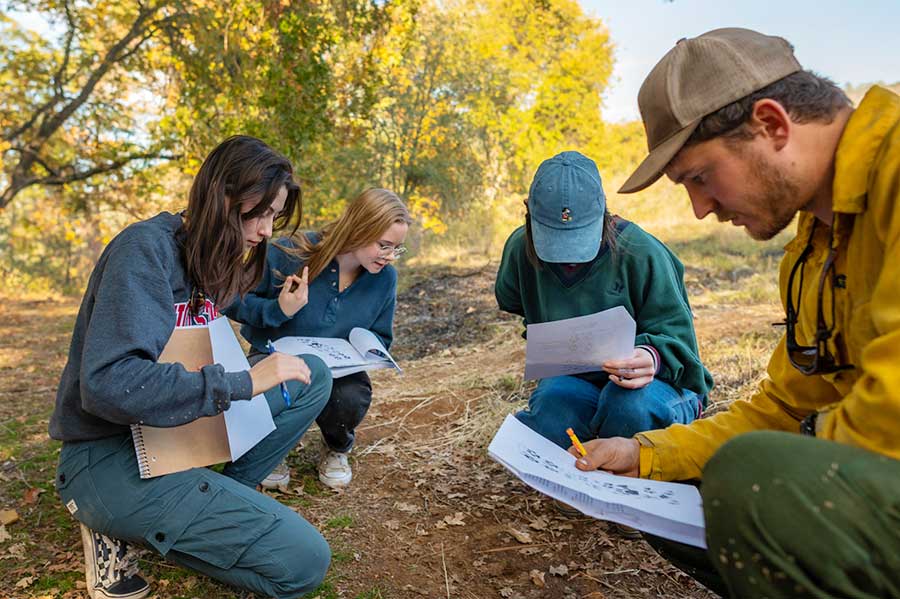
Do these jobs sound interesting to you?
Our alumni are:
- Cell and molecular biologist
- Research associate
- Community college instructor
- Working in biotechnology
- Agricultural researchers
- Environmental consultants
- PhD candidates and medical school students
Other possibilities are:
- Biochemist
- Biological technician
- Genetic counselor
- Health educator
- Food microbiologist
- Forensic scientist
- Research and development
- Wildlife biologist
- Conservation biologist
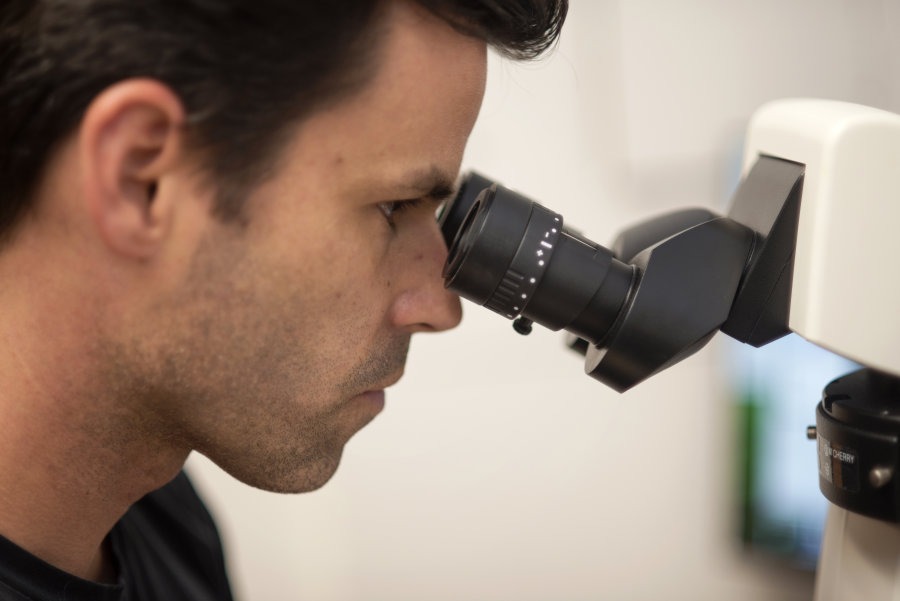
Is this the kind of salary you are seeking?
Data from the U.S. Bureau of Labor Statistics, shows the following outlook for Microbiologists(opens in new window):
Median Pay
$79,260 per year
$38.11 per hour
Job Outlook
9% (Faster than average)
Environment
Microbiologists work in laboratories and offices, where they conduct scientific experiments and analyze the results. Most microbiologists work full time and keep regular hours.
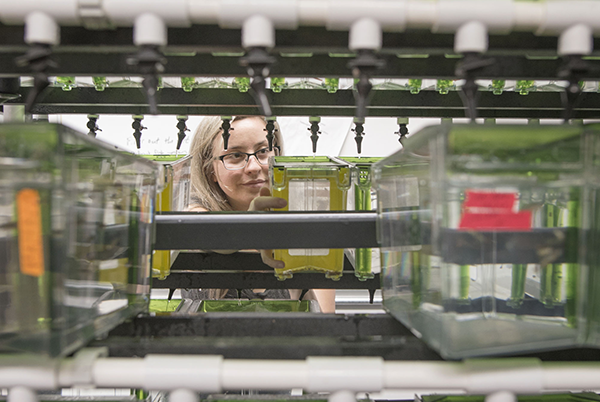
What if my bachelor’s isn’t in biology?
Our typical applicant has completed a baccalaureate in biological sciences. You could pursue this degree if your undergraduate degree was in a different field, but you would be required to take additional prerequisites to bring you up to speed. See your advisor for details.
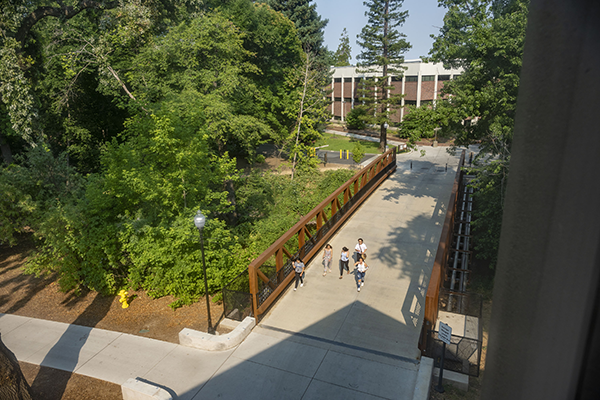
How long will it take?
- The MS in biology is a 30-unit program which can be completed in two years.
- Some students take longer, depending on the nature of their thesis research or if they also are working in the field while they complete the program.
What is it like to be a biology master’s student?
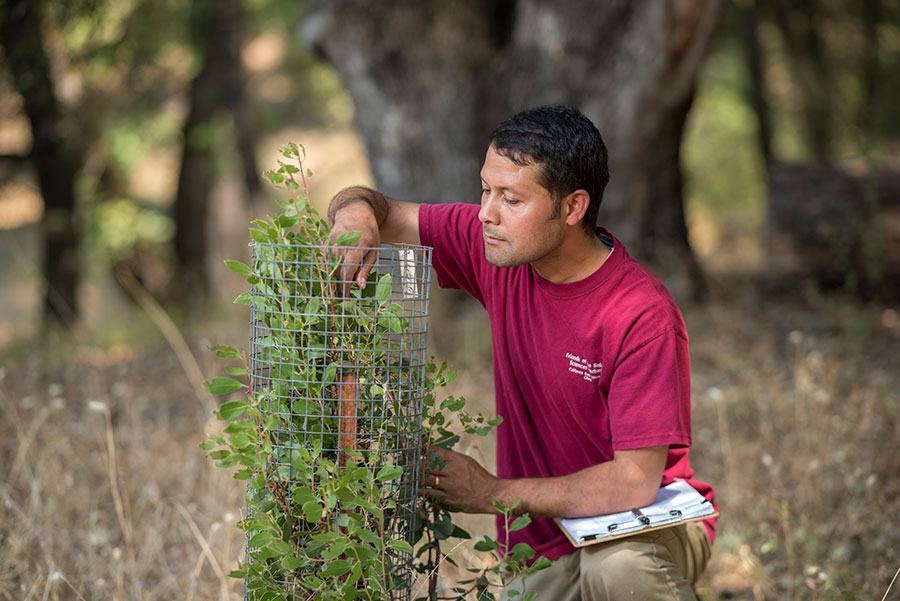
Field or Laboratory-Based Thesis Project
- Emphasis on training in research expertise through field or laboratory-based thesis project.
- Exciting, hands-on lab work doing cutting-edge research aimed at solving real-world problems.

Work in State-of-the-Art Labs
- Conducting scientific experiments and communicating findings orally and in writing.
- Work closely with faculty in state-of-the-art labs or out in the field.
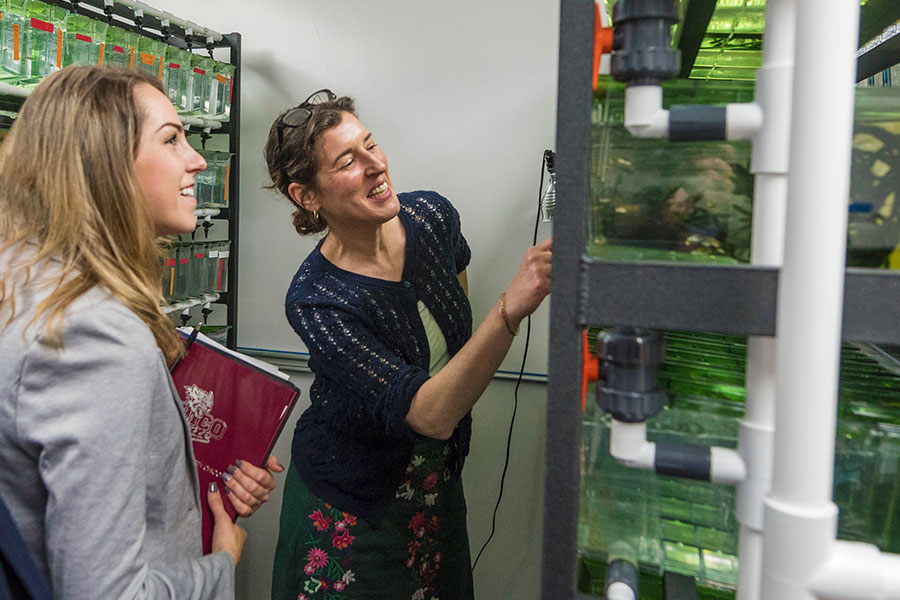
Supervised Teaching Experience
- Work with community and government agencies.
- Supervised teaching experience as a teaching assistant.
Here's What Our Students are Doing
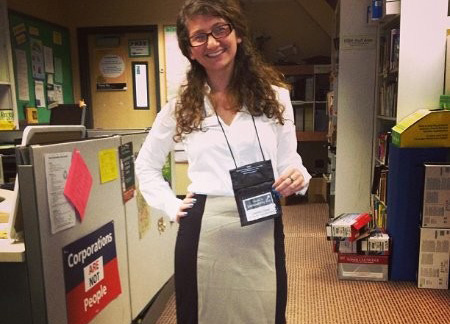
Awarded for Outstanding Achievement
While a student in the biology master’s program at Chico State, Courtney Silver was recognized by the CSU Trustees Award for Outstanding Achievement, a Research and Creativity Award, among many other honors.
After earning her MS, she worked as an instructor in the Biology department, helping to reshape and improve instruction in key non-majors courses. She is working on her PhD in amphibian conservation at Ohio University.
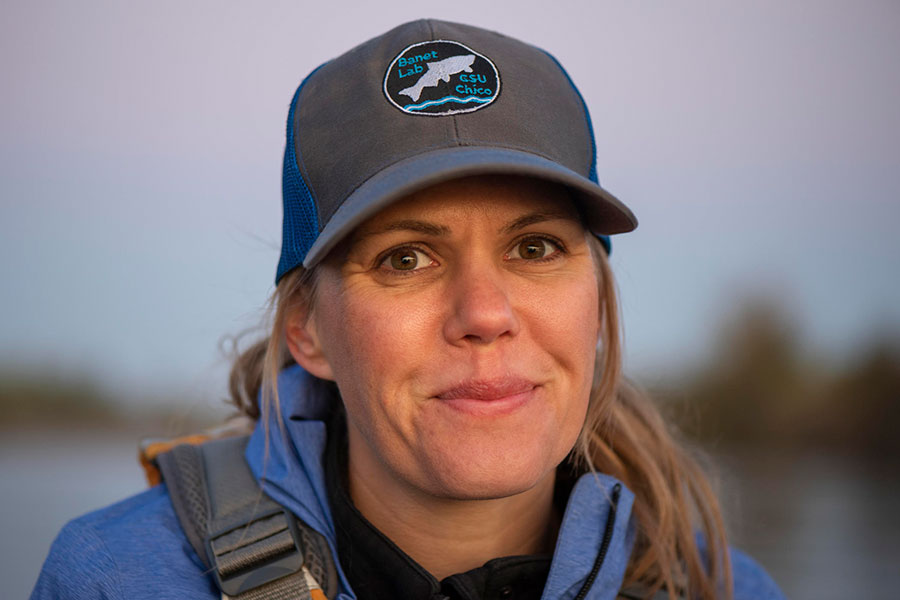
Studying Predation On Endangered And Threatened Juvenile Chinook Salmon
Graduate student Karissa Cunningham is studying predation on endangered and threatened juvenile Chinook salmon populations in the Sacramento River, using free floating predation event recorders (PERS). Her data show what species are preying on juvenile chinook salmon, and how man-made structures in the river influence predation risk. Karissa is also a graduate research assistant, where she works in the field with team of fisheries biologists from Pacific States Marine Fisheries and California Department of Fish and Wildlife.
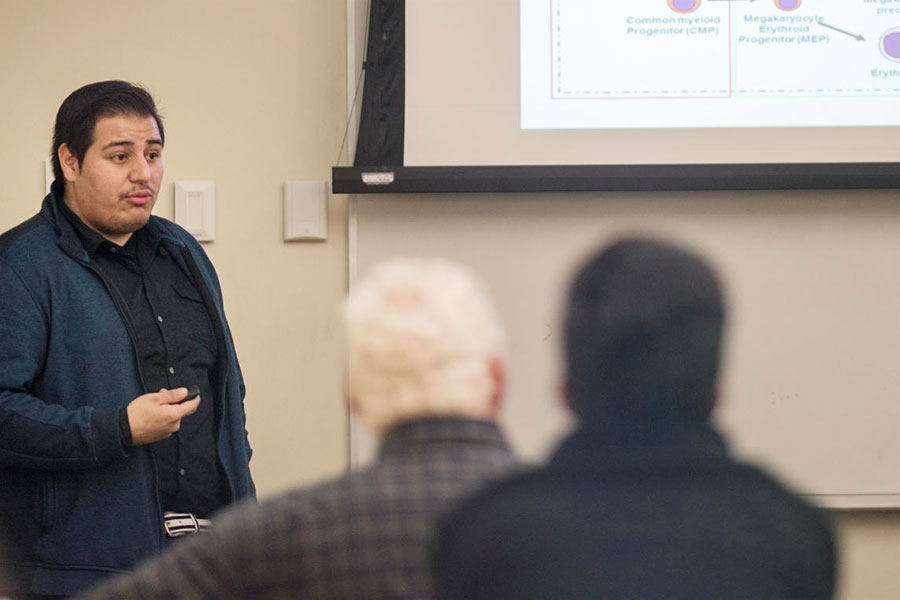
Winning Research Presentations
Arturo Berrun received an Office of Graduate Studies Research and Conference Award funding purchase of a molecular biology kit to make mRNA, and his winning research presentation was selected to advance to the statewide CSU Student Research Competition. Arturo is now making CAR T cells at City of Hope in Los Angeles.

